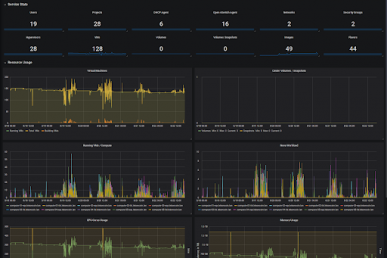Wazo Platform is an An open source software programmable telecommunication platform. Wazo Platform allows you can pick and choose the components you need to build your infrastructures. Most of Wazo Platform’s 229 git repositories on GitHub use Zuul. Zuul allows Wazo Platforms to have cross repository dependencies in pull requests at the source code level, the Debian packaging level and at the container level. Similarly the nodes support their private OpenStack containers hosted in AWS CM Instance.
We got talking with Frederic Lepied to get some answers to why Wazo Platforms chose Zuul, an open source CI tool, and how they use it with GitHub and OpenStack.
How did your organization get started with Zuul?
We had people coming into the organization with a lot of expertise in OpenStack so it was a natural move for us.
Describe how you’re using it:
Zuul is used with GitHub on most of our 229 git repositories at https://github.com/wazo-platform. The Zuul instance is hosted on AWS and is public at https://zuul.wazo.community/zuul/t/local/status. The nodes are VMs from our private OpenStack and containers hosted in AWS CM instance.
What is your current scale?
The scale in term of nodes is small (around 10) and big in term of repositories (229).
What benefits has your organization seen from using Zuul?
Zuul allows us to have cross repository dependencies in pull requests at the source code level, the Debian packaging level, and at the container level.
It also allows us to reuse job definitions among all the repository of the same type, which is very helpful.
What have the challenges been (and how have you solved them)?
Operations are difficult and we got a lot of help from the Software Factory team.
What are your future plans with Zuul?
We plan to continue to use Zuul for more tasks.
Are there specific features that drew you to Zuul?
Definitely the cross-repository dependencies.
- Inside Open Infrastructure: October 2024 - October 2, 2024
- Inside Open Infrastructure: June 2024 - June 18, 2024
- Inside Open Infrastructure: April 2024 - April 3, 2024

)










